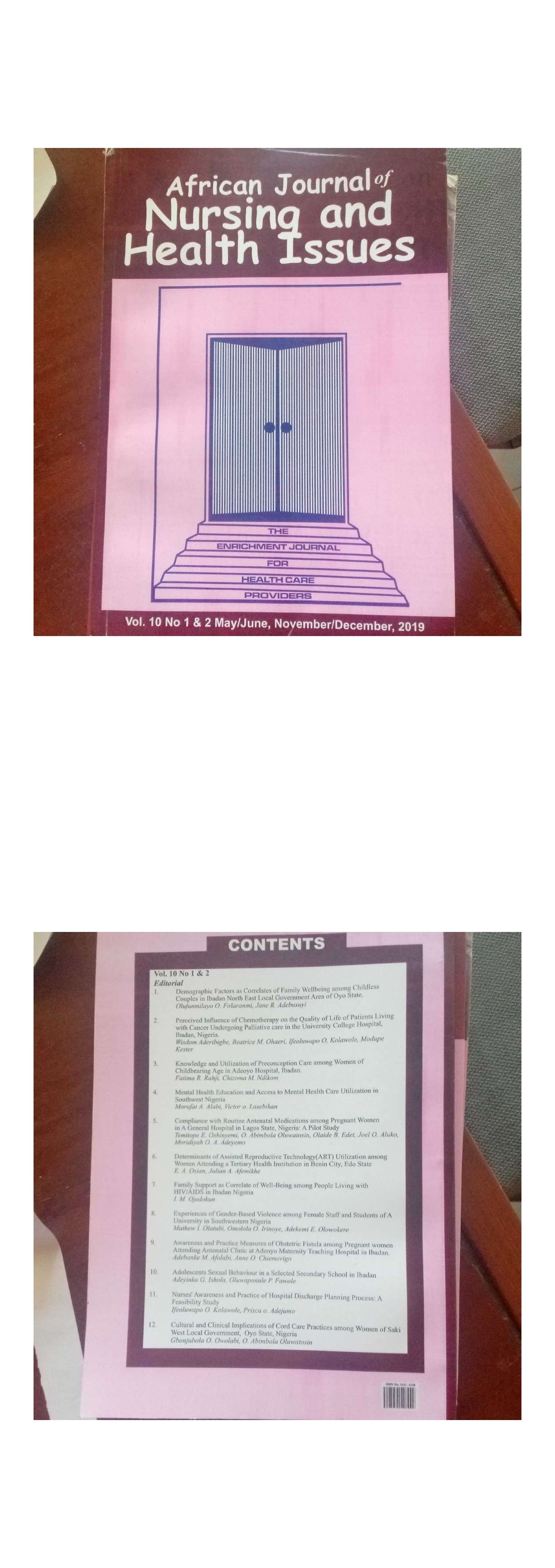
KNOWLEDGE AND UTILIZATION OF PRECONCEPTION CARE AMONG WOMEN OF CHILDBEARING AGE IN ADEOYO HOSPITAL, IBADAN
Background: Care during the antenatal period has been focused on improving maternal health and reproductive outcomes. Yet, evidence has shown that antenatal care alone is not enough. Initiating care before conception or preconception care (PCC) could be effective to further improve maternal health and reproductive outcomes. This study investigated the level of awareness, understanding, and utilization of components of preconception care among women of childbearing age in Adeoyo Maternity Hospital, Ibadan. The study constitutes a baseline attempt at generating information and identifying gaps in this study area.
Methodology: A descriptive cross-sectional design was used for the study; a purposive sampling technique was used to select 103 respondents, out of the 240 respondents that attended the clinic from March 4–7, 2019. The participants were pregnant women attending an antenatal clinic in Adeoyo Maternity Teaching Hospital who consented to participate in the study. A structured, self-administered questionnaire was used to collect the data. The data were analysed using descriptive statistics.
Results: Fifty-six (54.4%) of the respondents have not heard about preconception care. Only, 26 (25.2%) of the respondents were able to define preconception care as the care given to a woman before pregnancy. The majority, 77 (74.8%) of the respondents, claimed not to have utilized PCC. Even among those who have heard about preconception care, only 26 (25.2%) respondents claimed to have utilized it. Up to 38 (36.9%) of the respondents were unable to identify available components.
Conclusion: The study has shown that awareness, knowledge, and utilization of available preconception care components are quite low among respondents. The implications of these findings in low-resource settings like Nigeria include the need for massive awareness and educational intervention and the establishment of functional PCC units in our hospital and MCH settings, to enhance positive outcomes. Further research will also be needed in the future to assess the impact of such interventions and how to sustain their potential benefits.
